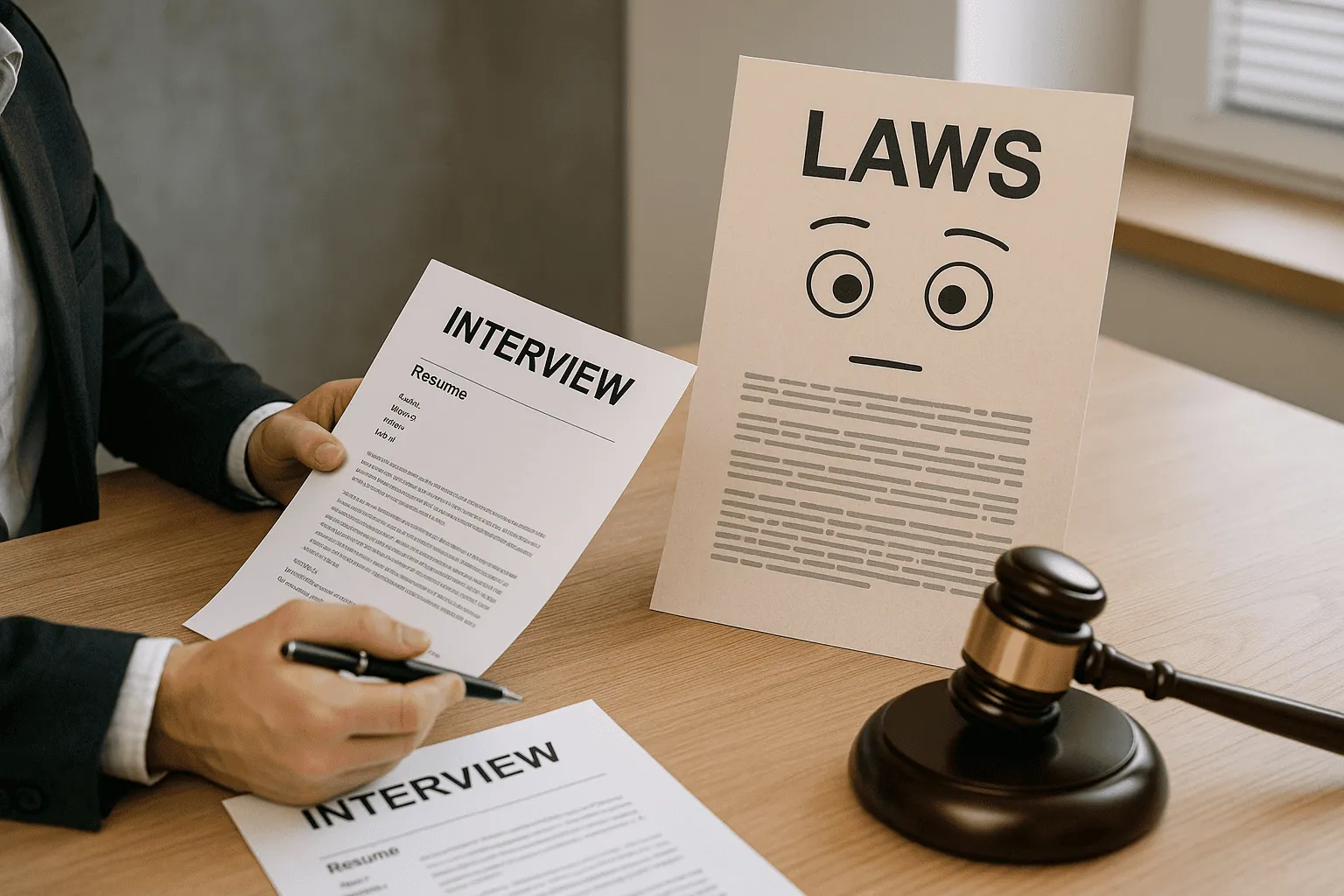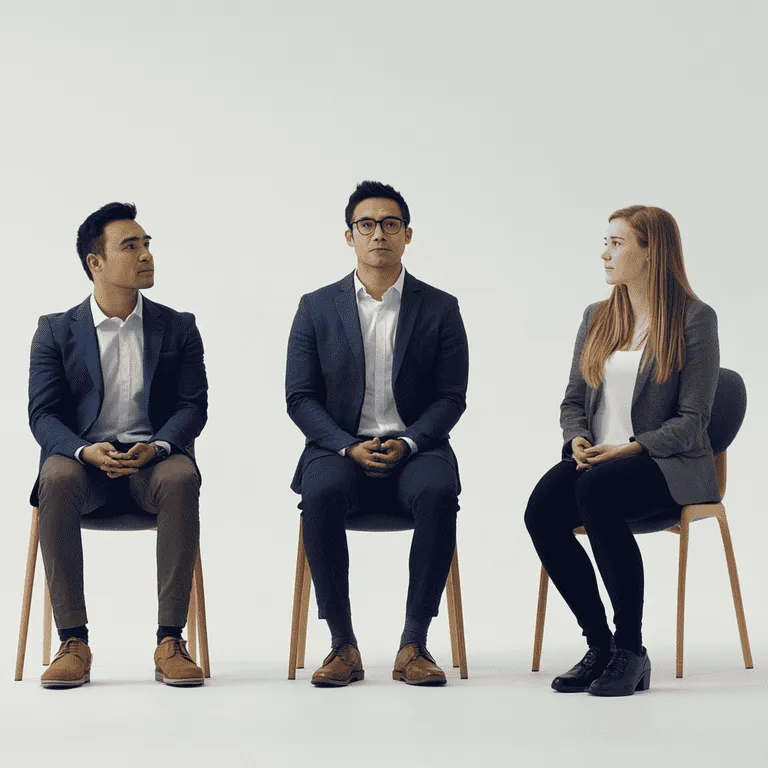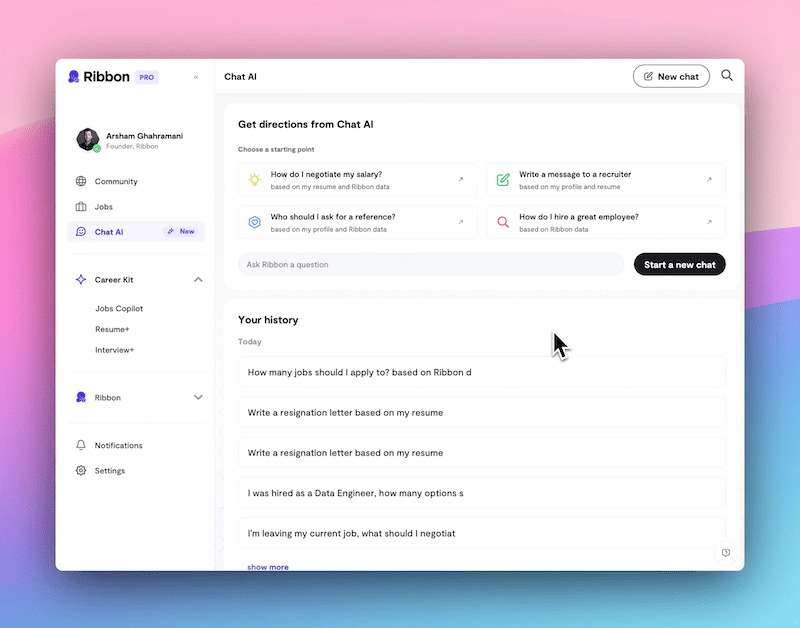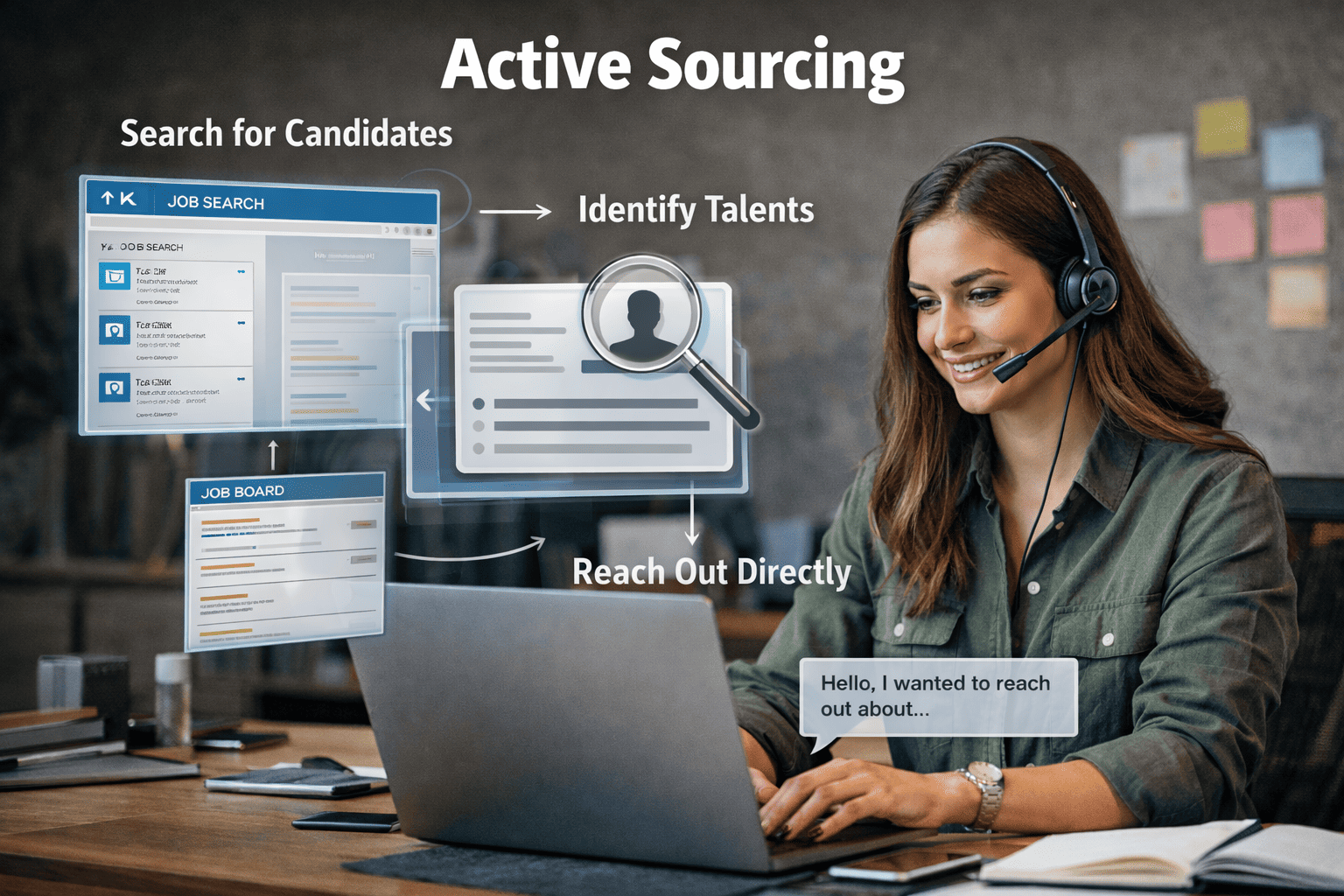Job Interview Laws You Need to Know

Hiring is risky—not just because of choosing the wrong candidate, but because of breaking the law.
Can you ask about salary history? Can you record an interview without consent? Can you use AI to screen candidates?
This guide gives you clarity. You’ll see what interview laws say in the US, EU, and UK.
Legal and Illegal Interview Questions

What the laws say
In the US, federal law bans interviews from targeting protected traits. You can’t ask about a person’s age, race, religion, sex (including pregnancy, sexual orientation, or gender identity), national origin, disability, or genetic history. That includes indirect or seemingly friendly prompts. Examples include:
- “How old are you?” or “When were you born?” – Illegal
- “Tell me about your marital status or kids.” – Illegal
- “Are you disabled?” or “What medications do you take?” – Illegal
But the law allows you to ask about job‑related capabilities, such as:
- “Are you able to perform this job with or without reasonable accommodation?” — That’s legal
- You can clarify if the candidate can meet essential tasks, like lifting weights, travel, or scheduling needs — as long as those relate directly to the role (eeoc.gov)
United Kingdom
- The Equality Act 2010 protects candidates from discrimination based on nine characteristics: age, disability, gender reassignment, marriage/civil partnership, pregnancy/maternity, race, religion/belief, sex, and sexual orientation.
- Asking about these traits directly or indirectly is unlawful. Example: “What year did you graduate?” could expose age.
- Legal alternative: you may ask if the applicant can meet work requirements—like evening shifts or travel—if directly linked to the role. (gov.uk)
European Union
- Under EU directives (and national laws like France’s Labour Code), only questions strictly relevant to assessing job suitability are allowed.
- Questions about family, religion, political beliefs, or private life are prohibited.
- Legal alternative: focus only on skills, experience, and the ability to perform the role. In France, case law confirms: if a question is not essential to evaluating ability, it is illegal.
What this means for your hiring process
- Draft questions carefully. Write them around tasks and job functions. Avoid curiosity about personal lives.
- Train interviewers. Many slip-ups happen from small talk. Replace “Do you have kids?” with “Our shifts run evenings—are you available at those times?”
- Standardize your script. Use structured interview guides that apply equally to all candidates. This keeps bias and risk low.
- Document answers objectively. Keep notes on skills and competencies, not personal impressions about protected traits.
- Cross-border hiring? Align with the strictest rules (often EU/UK). That keeps you safe if you’re hiring internationally.
Disability Accommodations
What the laws say
In the US: The Americans with Disabilities Act (ADA) prohibits disability discrimination. It protects qualified applicants with disabilities. You must offer reasonable accommodations for the application process and job, unless doing so causes undue hardship. You also can’t ask disability-related questions before offering the job, except if related to accommodations.
For example, asking “Do you have a disability?” is off-limits. But you can ask, “Will you need a reasonable accommodation to complete this interview or the job?” This is legal once you suspect or know the candidate may need help.
In the EU: Employers must also provide reasonable accommodations. Adjustments must be realistic and not impose disproportionate costs. The EU Guidance stresses fairness and access.
What this means for your hiring process
- Say the words upfront: In your job ad or scheduling email, include a line like:
“If you need accommodations during the hiring process, please let us know. We’re happy to help.”
This is both inclusive and legal. - Stay clear on the timing: Don’t ask about any disability directly. Let the candidate voluntarily disclose, especially when tied to accommodations they need—not to screen them out.
- Offer accommodations flexibly: That might include extended time, sign-language interpreters, accessible software, or alternate interview formats.
- Assess what’s reasonable: Use the ADA and EU rules as your guide. An adjustment should not strain your operations or cost excessively.
- Document and follow up: After offering an accommodation, check it works. Keep your notes focused on the requested change—not your assumptions.
- Train your team: Make interviewers aware that disability accommodation is about enabling, not exempting performance.
Recording Interviews: Consent First

Recording interviews can save you time. You get accurate notes, transcripts, and the chance to revisit details later. But you can’t just hit “record” without thinking. Interview recordings are regulated by both privacy and consent laws.
What the laws say
EU and UK (GDPR / UK GDPR)
- Recording an interview counts as collecting personal data.
- You must have a lawful basis for processing. The safest route is explicit consent.
- Consent must be informed and voluntary. You need to tell candidates why you are recording, how you’ll use the file, and how long you’ll keep it.
- Retention rules apply. You cannot store recordings indefinitely. Keep them only for the hiring purpose. (ico.org.uk, gdpr.eu)
France and other EU countries
- The principle of proportionality applies. Recording must be necessary for the stated purpose.
- Informing the candidate is essential. Hidden recordings are illegal.
United States
- Consent rules vary by state.
- In most states, “one-party consent” is enough—meaning if one person in the interview agrees, the recording is legal.
- Around 11 states, including California and Florida, require “all-party consent.” In those states, every participant must agree before recording.
- Regardless of state law, employers are advised to always notify candidates and get their permission in writing. (ncsl.org, eeoc.gov)
AI and transcription tools
- If you use AI assistants like Noota to record and transcribe, you must still inform candidates. GDPR and AI regulations treat transcripts as personal data.
- If the tool stores data outside your country, cross-border transfer rules may apply.
What this means for your hiring process
1. Always ask for consent
Never assume candidates are comfortable being recorded. At the start of the process, include a line such as:
“We’d like to record this interview for note-taking purposes. The recording will be stored securely, used only for evaluation, and deleted after six months. Do you consent?”
2. Put it in writing
Verbal consent is good, but written consent is stronger. Add a checkbox to your scheduling form or confirmation email. That way, you have proof if ever challenged.
3. Be clear about the purpose
Explain why you’re recording. For example: “to ensure fair evaluation” or “to share with the hiring panel.” Avoid vague reasons. Transparency builds trust.
4. Limit storage and access
Store recordings in your secure ATS or HR system. Limit access to recruiters and panel members only. Set a deletion date—commonly 6 to 12 months if the candidate is not hired.
5. Offer alternatives
If a candidate refuses consent, don’t penalize them. Offer to take written notes instead. Discrimination based on refusal would breach privacy and equal treatment laws.
6. Train your team
Make sure interviewers understand the rules. A casual “let’s record this call” without consent creates legal risk.
7. Be cautious with AI
If you use transcription tools like Noota, explain clearly that an AI assistant will join the call. Tell candidates where the data is processed and how it’s secured.
Using AI in Interviews and Screening

AI is transforming hiring. You can now use AI to screen resumes, rank candidates, or even analyze interviews. These tools save time, but they also raise legal and ethical questions. The rules are evolving quickly—and you need to stay on top of them.
What the laws say
European Union (EU AI Act)
- The new EU AI Act classifies many recruitment tools as “high-risk.”
- High-risk systems include AI used for candidate evaluation, resume ranking, or automated interviewing.
- Employers must follow strict rules: risk management, human oversight, documentation, and transparency.
- Candidates must be told when AI is used to evaluate them. They also have the right to request human review.
United States
- At the federal level, the EEOC applies existing anti-discrimination laws to AI tools. If your AI screening creates bias, you are liable.
- Local laws go further. New York City’s Local Law 144 requires bias audits of automated employment decision tools (AEDTs). Results must be published, and candidates must receive notice before the tool is used.
- Other states like Illinois and Maryland have passed laws on AI video interview analysis. They require disclosure and candidate consent.
United Kingdom
- UK GDPR applies to automated decision-making. If AI makes a “significant” decision about a candidate, you must inform them and provide human intervention.
- Transparency is essential. Candidates should understand how AI influences their outcome.
What this means for your hiring process
1. Tell candidates when AI is used
Don’t let AI operate in the background without notice. Be upfront:
“We use AI to help us screen applications. The tool reviews resumes for relevant skills. A recruiter will always review the final shortlist.”
This protects you legally and builds trust.
2. Always keep a human in the loop
Even if AI ranks candidates, a recruiter should make the final call. This ensures compliance with GDPR and the EU AI Act. It also reduces the risk of unfair rejections.
3. Demand bias audits from vendors
If you buy an AI tool, ask for proof of fairness testing. In NYC, this is legally required. Even outside NYC, it’s good practice. Document the audit and keep it on file.
4. Document your process
Keep records of how AI is used in hiring. Note which tools you use, what they measure, and how decisions are made. This documentation helps if you’re ever challenged legally.
5. Give candidates rights information
Include in your privacy notice how AI is used. Explain their rights to request human review. Provide a contact email for concerns.
6. Limit AI to clear, job-related factors
Avoid tools that score based on personality or emotion detection alone. These raise higher legal and ethical risks. Stick to skills, experience, and role requirements.
7. Train your hiring team
Recruiters and managers should understand how the AI works. They should know its limits, strengths, and what to do if a candidate questions it.
Salary History & Pay Transparency
Talking about pay in interviews feels simple—but it’s highly regulated. In many regions, asking about salary history is banned. At the same time, pay transparency laws are growing. You need to know what you can ask and what you must share.
What the laws say
United States
- Over 20 states and many cities now ban employers from asking about a candidate’s salary history. Examples include California, New York, Massachusetts, and Illinois.
- The goal is to prevent wage discrimination from following people through their careers.
- Penalties vary, but violations can lead to fines or legal claims.
- Pay transparency laws are also spreading. In states like Colorado, California, and New York, you must post salary ranges in job ads or disclose them upon request.
European Union
- The EU Pay Transparency Directive was adopted in 2023. It requires employers to provide candidates with salary information before interviews or at least when requested.
- Employers with 100+ workers will need to report gender pay gaps.
- Asking about salary history is discouraged. The focus is on equal pay for equal work.
United Kingdom
- While there is no full ban on salary history questions, regulators encourage employers to avoid them.
- The Equality and Human Rights Commission advises against asking past salary to prevent perpetuating gender or race pay gaps.
- Pay transparency discussions are rising, and many large companies already disclose ranges voluntarily.
What this means for your hiring process
1. Remove salary history questions
Don’t ask, “What did you earn in your last role?” Even if it’s still legal in your region, it’s risky. It can create bias, limit fairness, and frustrate candidates.
2. Focus on expectations, not history
A better question is: “What are your salary expectations for this role?” This keeps the conversation forward-looking and compliant.
3. Prepare pay ranges
Be ready to share your pay range early. In some regions, you must publish it in the job ad. In others, you must disclose it on request. Either way, transparency helps you stand out.
4. Train interviewers and recruiters
Make sure everyone knows not to slip in salary history questions by habit. Provide clear scripts and alternatives.
5. Update job postings
If you’re in a region with pay transparency rules, include ranges in your job ads. Use realistic numbers—candidates will challenge vague or inflated ranges.
6. Document your policy
Write down your approach: no salary history questions, disclosure of pay ranges, and alignment with local law. Share it with your hiring managers.
7. Use transparency as a selling point
Candidates increasingly expect pay clarity. Even where it’s not required, being open about compensation builds trust and attracts stronger talent.
DEI and Lawful Hiring

Diversity, equity, and inclusion (DEI) are top priorities in hiring. You want to attract diverse candidates and build fair teams. But DEI initiatives must still comply with discrimination laws. If you go too far, you risk claims of reverse discrimination.
What the laws say
United States
- Federal law, under Title VII of the Civil Rights Act, prohibits discrimination based on race, sex, religion, and other protected traits. That means you cannot make hiring decisions based solely on someone’s identity.
- “Quotas” for protected groups are illegal in most cases. You can set goals to increase diversity, but you can’t reject a qualified candidate because they don’t fit a demographic target.
- The EEOC supports outreach, targeted recruiting, and removing bias from hiring steps. But it warns against rigid rules that disadvantage other groups.
European Union
- EU equality law also bans discrimination based on sex, race, age, disability, religion, or sexual orientation.
- Positive action is allowed in limited cases. For example, if two candidates are equally qualified, you may prefer a candidate from an underrepresented group. But the preference must be proportionate and justified by a clear diversity gap.
- Blanket quotas are not permitted under EU law unless mandated by specific national legislation.
United Kingdom
- The Equality Act 2010 follows a similar approach. “Positive action” is legal, but “positive discrimination” is not.
- Employers can run outreach programs for underrepresented groups. They can also choose a diverse candidate over another when qualifications are equal.
- But they cannot select a candidate solely based on their protected characteristic if that person is less qualified.
What this means for your hiring process
1. Focus on outreach, not quotas
You can advertise jobs in places that reach diverse talent pools. For example, post roles in community networks or universities serving underrepresented groups. This widens your pipeline without breaching anti-discrimination laws.
2. Standardize your evaluation
Use structured interviews and scorecards. This reduces the influence of bias and ensures candidates are compared on job-related skills.
3. Set diversity goals, not hard quotas
It’s fine to aim for more women in leadership or more minority representation. But treat these as internal benchmarks—not rigid selection criteria. Document them as aspirations, not rules.
4. Apply “tie-break” rules carefully
If two candidates are equally qualified, you may legally choose the one from an underrepresented group. But you must document the tie and ensure the decision is proportionate.
5. Avoid tokenism
Don’t highlight DEI in ways that feel performative. Candidates will see through it. Instead, focus on creating fair opportunities across the process.
6. Train interviewers
Make sure your team understands the difference between positive action (allowed) and positive discrimination (not allowed). Provide clear do’s and don’ts.
7. Measure outcomes
Track diversity in your pipeline and hiring results. Use data to improve outreach and reduce bias. But keep data anonymous and aggregated to protect privacy.
Secure and Compliant AI Interviewing: Noota

Your interview tools must comply with privacy and security rules—especially if you collect personal candidate data. Noota fits the bill :
- GDPR-compliant infrastructure : All your interview data with Noota stays encrypted in EU data centers (France, Belgium, Netherlands). GDPR is central to its architecture.
- Enterprise-grade certifications :Noota uses a security-by-design model. Your recordings, transcripts, and metadata are encrypted in transit (TLS 1.2/1.3) and at rest using AES-256. Its infrastructure supports SOC 2 Type II and ISO 27001 standards.
- Control over your data : You decide how long to keep data—from one day to multiple years—especially if you're on an enterprise plan. Free accounts, meanwhile, delete archived data after a month. You can also delete your data entirely.
- No AI training on your private data : Your recordings and notes won’t be used to retrain Noota’s AI. You — and only you — control it. That limits exposure and meets privacy expectations.
- Secure integrations and transfers : Noota connects with your ATS and tools like Salesforce, HubSpot, Slack, Notion. All data goes securely, without leaking your candidate or hiring data.
- Access control & monitoring : Noota uses strict internal access rules, peer-reviewed code, RBAC (role-based access control), MFA, and regular vulnerability scans. Real-time monitoring keeps uptime above 99.9%.
Want to let AI generate compliant AI notes for your interviews ? Try Noota for free here.
Leverage your Interview Data
AI interview notes, scorecard, follow-up, ATS integration, and more...
Related articles

Forget note-taking and
try Noota now
FAQ
In the first case, you can directly activate recording as soon as you join a videoconference.
In the second case, you can add a bot to your videoconference, which will record everything.
Noota also enables you to translate your files into over 30 languages.

.svg)
.svg)

.webp)

.png)


.svg)
